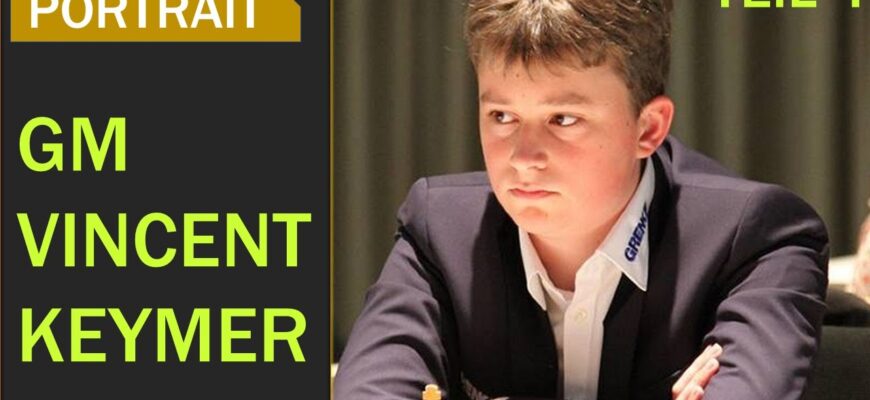In the intricate, often all-consuming world of professional chess, where singular focus is routinely glorified, a refreshing perspective emerges from one of its brightest young stars. Vincent Keymer, the German Grandmaster and recent champion of the prestigious Chennai GM tournament, has articulated a vision that extends well beyond the 64 squares of the chessboard: a life that truly embraces its entirety.
The Paradox of Passion: Deep Enjoyment Meets Broader Ambition
Keymer`s statement, “Chess is something I really enjoy,” might seem self-evident for someone who has ascended to the elite ranks of the game. However, it serves as a crucial reminder of the intrinsic motivation at play, distinguishing genuine passion from a mere pursuit of titles or ratings. Yet, this profound enjoyment is intelligently tempered by a mature recognition of life`s vast dimensions. His expressed desire to “build a life outside of Chess” reveals a foresight not always present among individuals who have dedicated their formative years to high-stakes intellectual competition.
For many chess prodigies, the game often becomes an entire universe. Every waking hour can be consumed by analysis, intricate opening preparation, complex tactical puzzles, and relentless competitive play. This intense, singular focus, while undeniably instrumental for reaching the pinnacle of the sport, can inadvertently narrow a player`s experiences, social development, and overall well-being. Keymer’s perspective suggests a deliberate, conscious effort to circumvent this potential pitfall, aiming to cultivate interests and foster relationships that exist independently of his professional identity.
Beyond the Board: Defining a “Life Outside Chess”
The concept of a “life outside chess” for a Grandmaster might appear anachronistic to those accustomed to the traditional image of the reclusive chess genius. After all, the pursuit of chess excellence demands a near-monopoly on one`s intellectual and emotional resources. However, Keymer`s stance hints at a burgeoning understanding within the professional chess community: that holistic well-being is not merely a luxury, but a fundamental necessity for sustained performance, mental resilience, and personal fulfillment. It is a subtle acknowledgment that even the sharpest minds require periods of mental respite, diverse stimuli, and non-chess related triumphs to thrive.
This pursuit of balance could manifest in myriad forms: engaging deeply with academic studies, exploring creative arts, developing hobbies like sports or music, or simply cultivating robust social connections away from the often isolating environment of tournament halls. Such activities provide crucial mental breaks, broaden perspectives, and, somewhat ironically, can even enhance a player`s strategic thinking by offering fresh analogies and insights derived from disparate fields. The ultimate truth here is that a well-rounded individual often proves to be a more resilient, innovative, and ultimately, a more enduring competitor.
The Chennai Triumph: A Testament to a Balanced Approach
Keymer`s recent triumph at the Chennai GM tournament stands as a compelling testament to the efficacy of his philosophy. It emphatically demonstrates that his pursuit of a balanced life does not diminish his competitive edge; on the contrary, it may very well be a significant contributing factor to his remarkable success. Winning at such a high level demands not just raw talent, but also incredible mental fortitude, stamina, and refined emotional regulation – qualities often significantly bolstered by a life that provides stability, varied outlets for expression, and genuine personal satisfaction.
His achievement in Chennai is a substantial milestone, yet it is clear that for Keymer, it represents just one important facet of a much larger, multi-dimensional personal journey. He embodies a new generation of chess players who are not solely extraordinary athletes of the mind, but also thoughtful, conscious architects of their own broader personal narratives.
A Modern Paradigm for the Future of Professional Chess
Vincent Keymer`s candidness about his dual ambitions offers a valuable and progressive paradigm for the future of professional chess. It challenges the long-held traditional image of the isolated, obsessively singular genius, proposing instead a model where intellectual pursuit is thoughtfully balanced with comprehensive personal growth. This holistic viewpoint benefits not only the players themselves, leading to healthier and more sustainable careers, but also significantly enriches the narrative surrounding the sport, making it far more relatable and profoundly inspiring to a much broader, global audience.
Ultimately, Keymer`s insights serve as a poignant reminder that even at the pinnacle of intellectual competition, the game is but one part of the grander, more complex game of life. And for this remarkable young champion, it seems, the most profound and lasting victories may yet occur entirely off the board.
This article is an original creation, developed from the core themes identified in the provided minimal news snippet concerning an interview with Grandmaster Vincent Keymer. It elaborates on his expressed enjoyment of chess and his stated desire to build a fulfilling life beyond the game, exploring the broader implications of such a philosophy for elite competitors.








